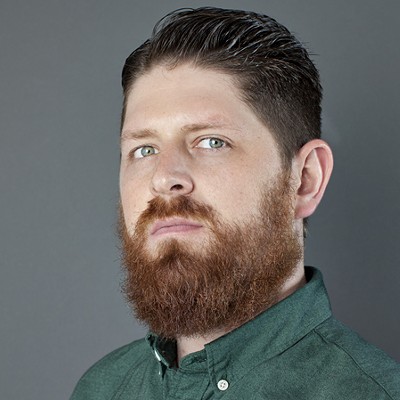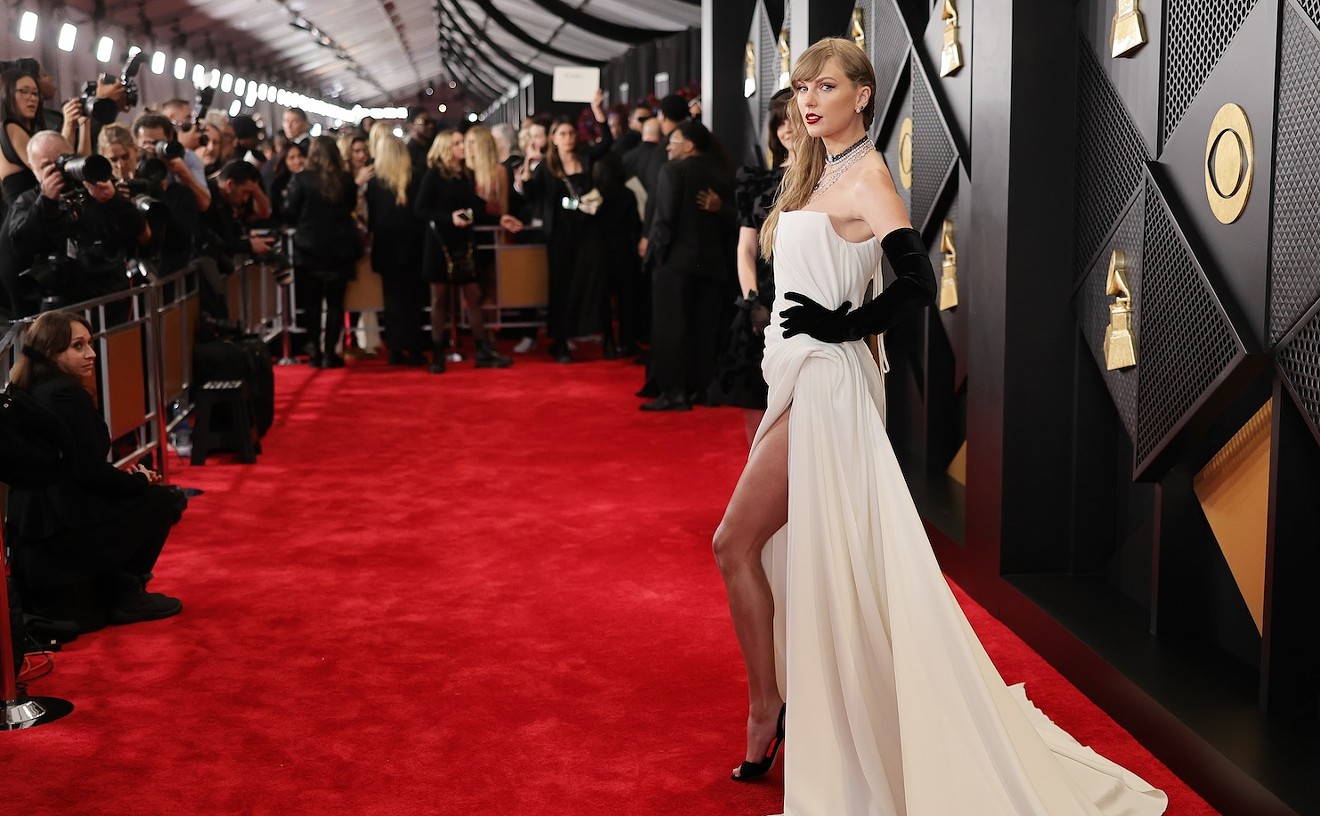Ostensibly, Caribou is just one guy, Daniel Snaith, a brainy Canadian musician with a Ph.D. in mathematics. Now 32 years old and living in London, he has floated around the indie scene for exactly a decade, releasing album after album full of exquisitely eclectic electro-pop and slow-swirling vortexes of sound. In the studio, it's a band of one.
On the road, though, there are three other members — Ryan Smith, Brad Weber, and John Schmersal — who help Caribou's main man play all of that esoteric gear (double drum kits, guitars, keyboards, syths, and such) cluttering the stage.
"The recording aspect is a solitary thing, which contrasts greatly from the live thing," Snaith says. "All four of us are involved in putting the stage show together. It's collaborative. It's communicative."
This Sunday, Grand Central will host Snaith and his cohorts, a group of guys reinventing songs written and recorded by a mathematician who spends 99 percent of his music-making hours alone in his apartment. There will be accidents, improvisation, and a few new discoveries.
By phone last week, New Times asked Snaith about the art of home recording and the link between music and math.
New Times: Are the studio and stage completely different projects for you?
Dan Snaith: They're definitely very, very different. It's just me in the studio and all of us on tour. The studio is such a hermit-like lifestyle. Then touring is the most social or extroverted lifestyle imaginable — being somewhere different every night and meeting different people every night.
When and how did you start playing music?
Well, this is what my parents say now in retrospect. I don't know if it's just their post-rationalizing. But I always used to have plastic tubs or other things around the kitchen that I'd steal and play drums on when I was, like, 3 or 4 years old. And then, when I was 5, I started playing piano. That was the main instrument I learned from that point until I was a teenager. I spent lots and lots and lots of time playing the piano.
What initially jolted you into writing your own songs?
It was just a friend of mine from the small town where I grew up, this guy named Koushik, who now actually releases music on Stones Throw Records. He's the guy who introduced me to electronic music like Plastikman or techno coming out of the UK. It was challenging for a number of reasons. It was very different from any other music I'd ever heard. It was made on totally different equipment than I'd ever used. And a lot of it was made very cheaply. That was the real revelation: Instead of having to rent an expensive studio, which is impossible when you're a teenager, I could start making music on these relatively cheap machines.
Which machines figured into your early setup?
It's always been a computer with various bits and pieces. And it hasn't really changed since I made my first album with a computer, some software called Acid, a Fender Rhodes, old keyboards, drum machines, and a pile of records that I'd sample. There have been albums with more or less guitars, bass, synthesizers, or samples. But it's always just a mixture of those things.
Back then, were you working from home?
Yeah. And I still am. I've done it that way since I was a teenager. It's just so comfortable. At home, there's no pressure. There's nobody observing me. And one of the most important things for me is the freedom to make some really misguided music. If I make 600 tracks for a record, then a bunch of them are just total garbage. And if I was in the studio with an engineer standing over me, I wouldn't feel as free to do a terrible vocal take.
But you've been a big indie figure for a while. Have you done a lot of work in professional studios over the past few years?
No. The only real time was mixing Swim, which came out of having more money available from the Polaris Prize. I decided that I wanted this album to sound as hi-fi and well mixed as possible because I was thinking these songs would be played in clubs. So after the whole process of recording, which took a year, I had half the album mixed over a week in Wales by an engineer named David Wrench and the other half in the Hamilton studio owned by Jeremy from Junior Boys. And it was an amazing experience, particularly learning how professional mixing engineers work. Even learning about equipment... I don't know anything about microphones or preamps or mixing desks. It's all totally foreign to me.
You're a musician and a mathematician. Is there any overlap between the two disciplines?
Not in the way people expect. People expect using formulae to make the music or working in some very scientific, rational way or whatever. But music is an emotional and intuitive experience. That's what I like about it — making something euphoric or melancholy or exciting in some gut way. And also people's experience with mathematics comes from high school, where it was boring and dry. But at a certain point, mathematics becomes more creative and intuitive. It's that side of it that I see having more in common with making music.
Almost more than anything, Caribou is tied to the wide swath of genres — krautrock to funk — that creeps into the music. Why do you slip so often between one kind of music and another?
I've always listened to extremely varied types of music, and I think that started when I was growing up. You know, any interesting music that we could get our hands on was great. So whenever I heard something that would capture my attention, it didn't matter what genre it was as long as it had some kind of exciting aesthetic idea. And I think that's just naturally translated into the way that I work. I don't necessarily think about it being this type of music or that type of music. All sorts of music just ends up percolating into the record.











